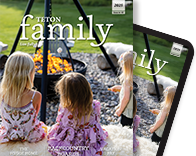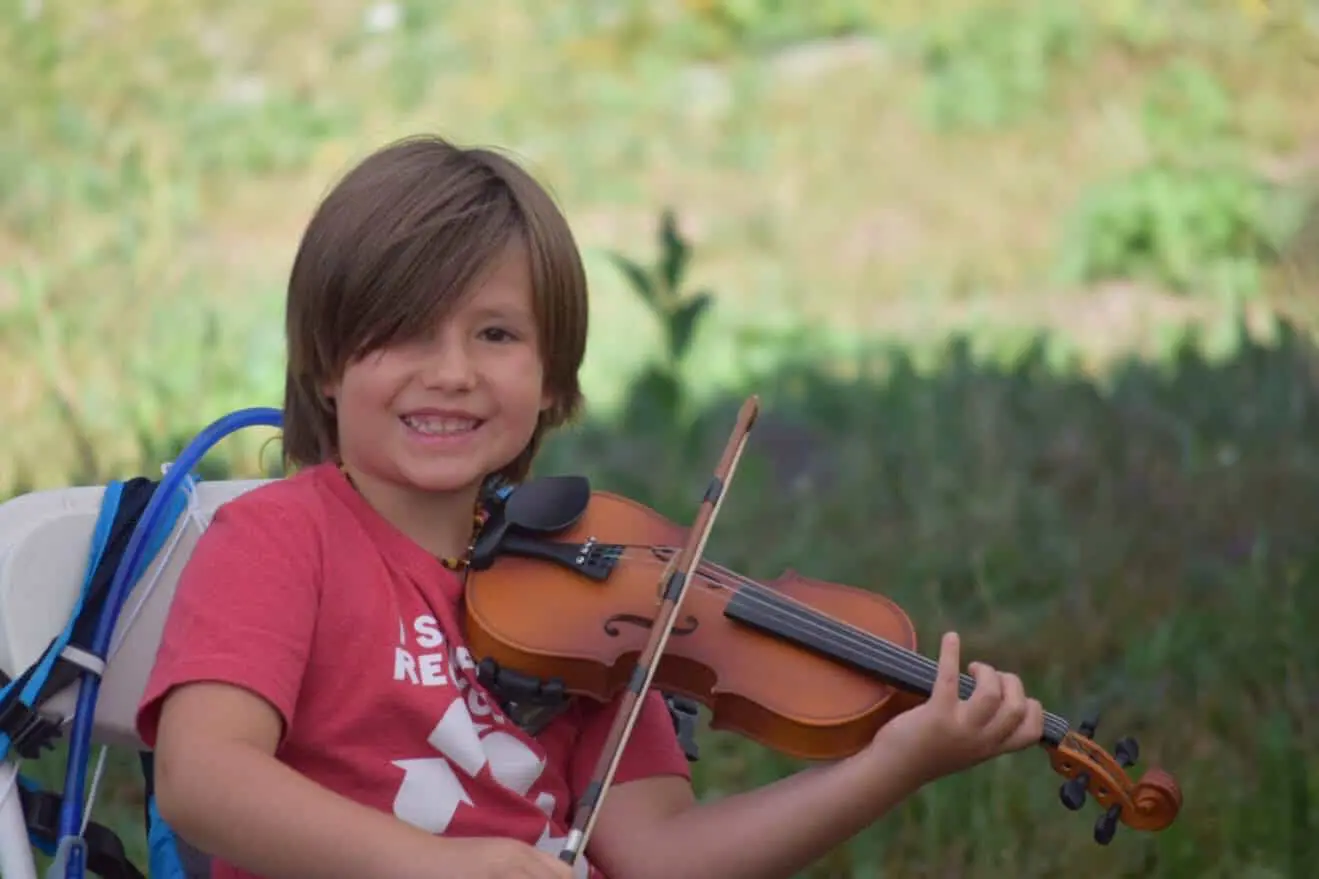By Rich Anderson // Photography provided by Targhee Music Foundation
—
With more than 25 years under my belt interviewing musicians—classical, folk, rock, jazz, and anyone else playing a gig in the Tetons—one question I ask nearly every musician is, “Did you grow up in a musical household?”
The answer is almost always “yes.” Maybe their mother, father, or siblings all had some kind of musical habit. Or, maybe their uncle collected volumes of records, their mother sang while cooking dinner, or their father messed around on a beat-up guitar he had since college.
Giving children a musical life begins by providing them a musical household. And, it doesn’t take much to spark interest—an interest that needn’t lead to a career in order for music to have beneficial effects.
“It takes just a little bit of exposure,” says Thomas Sneed, mandolin player, director of the Targhee Music Camp, and staff member at the nonprofit Targhee Music Foundation. “Just having instruments around the house is irresistible … [kids] want to play and touch them.”
When you take the next step and teach them a simple song they enjoy, “they’re off and running,” he says.
Developing Musical Brainwaves
A large and rapidly growing body of science studies the neurological effects of listening, learning, and making music. Daniel Levitin, author of This Is Your Brain on Music: The Science of a Human Obsession, says music affects and activates every part of the brain, from the areas that hold memories, to the parts that regulate emotion, to the zones responsible for motor coordination. It fires up the left and right hemisphere, the front and the back, and the inside and outside of the brain. Music can actually change the structure of kids’ brains, too, increasing neural connectivity, which aids in problem solving and creativity. And, because music can express emotions for which we otherwise have no words, the act of hearing, and subsequently playing music, fosters empathy and sensitivity, leading to a richer emotional life.
But we don’t need an MRI machine to see just how good music is for childrens’ brains (or for anyone else’s).
“There are a billion benefits,” says Joe Rudd, a multi-instrumentalist, music producer, and teacher at the Teton Music School in the Jackson Hole Center for the Arts. “One thing I notice, as we get into the digital world is that having something cool to do as a child that isn’t [related to] a screen is massive.”
But making progress in music takes patience and discipline.
“There are not many kids I run into who just naturally have discipline,” says Rudd. “A musical practice can be a fun and engaging way of instilling it. It helps [children] understand that you have to show up; you have to put time into it for results. That’s a huge, huge component of what you can take away from music lessons.”
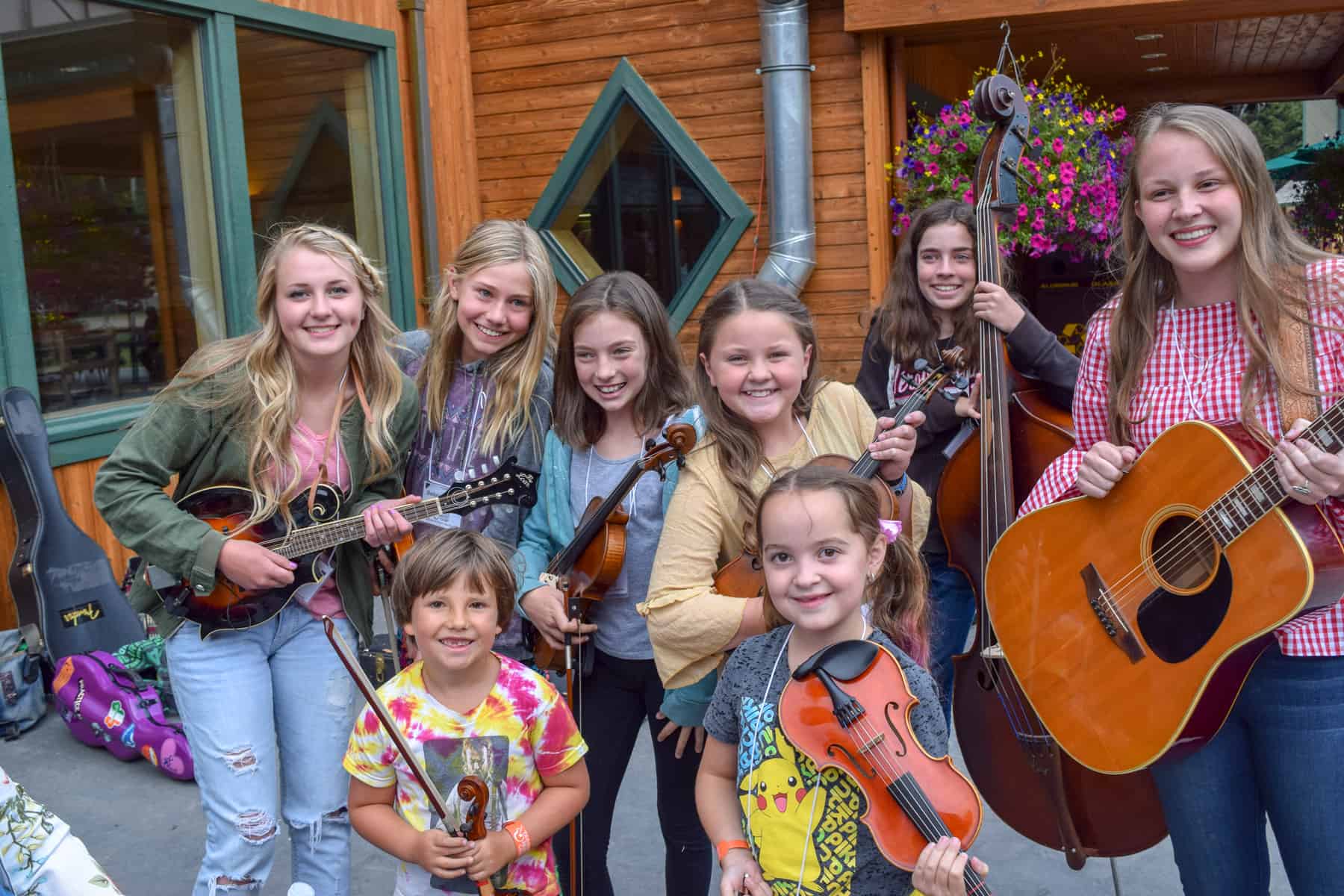
A Melodic Collective
Another way to make music fun for kids is by playing with other people. Meaghan Heinrich, the education curator for the Grand Teton Music Festival (GTMF) and an elementary school music teacher in Milwaukee, Wisconsin, describes the way music has been taught for decades: “You teach standards and objectives—the musical concepts we want students to learn. … This is how many beats are in a quarter note. … These are the names of the notes on the staff.”
She says that learning about music in this way is neither easy nor interesting.
“But if you start by making music together as a group … singing a song together … you start with the actual music,” she says. “This gives [kids] the opportunity to learn things.”
Playing or singing as part of a group also reinforces the sense of community involvement needed to make any group activity succeed. And it gives every youngster the feeling of being a part of something bigger than an individual making music.
“I’m happy if students gain knowledge; I’m happy if they understand the concepts,” says Heinrich, “but community skills are the best! They lead to success in the real world, whether they go into music or not. We want them to be able to work with other people, to be able to collaborate, to use their imagination, to be patient and wait their turn. All those skills make you a better person to be around and more creative in your job, no matter what that ends up being.”
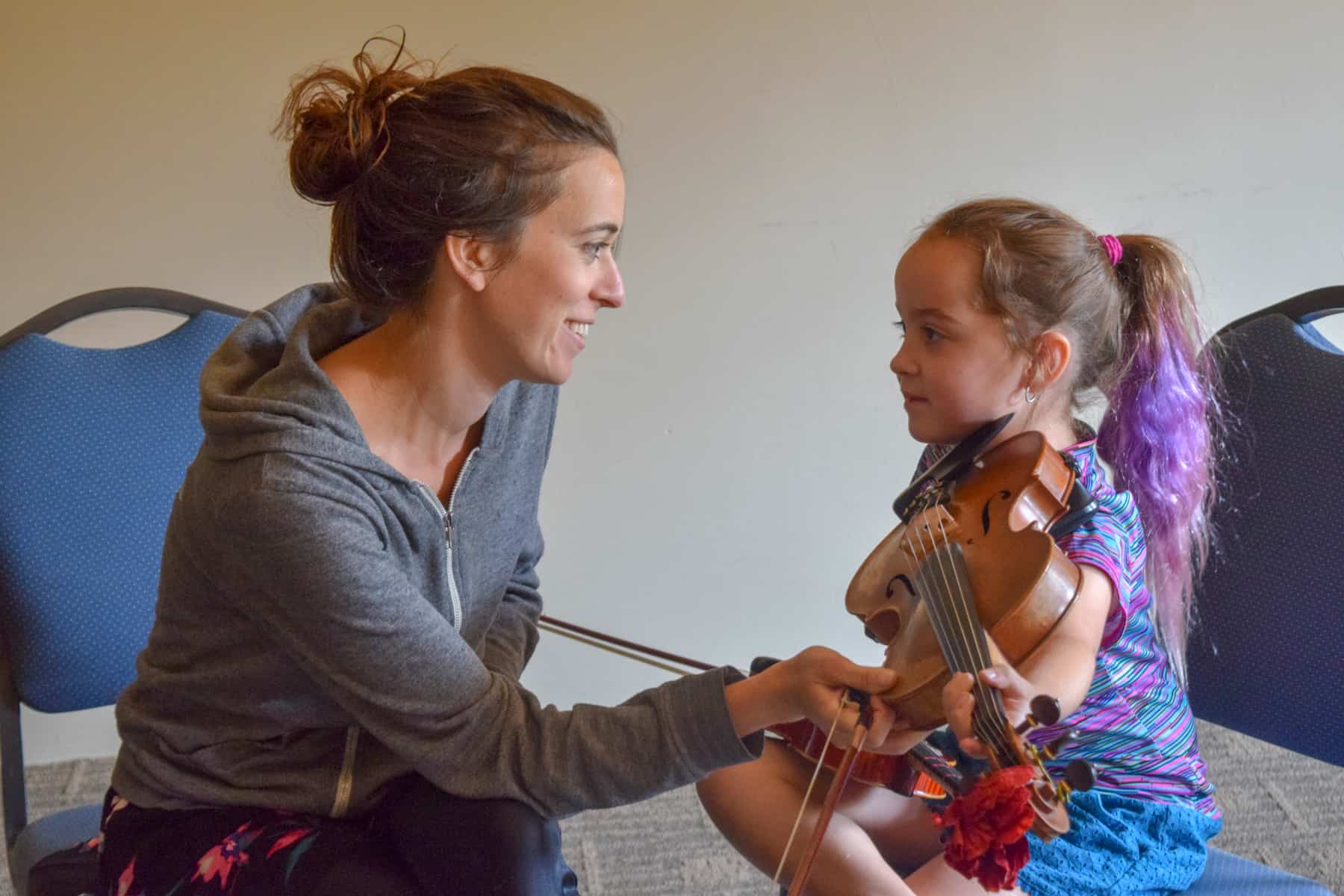
Improv for the Real World
Music has been a part of the lives of Jackson local Jennifer Striegel’s two sons, Rhys (fourth grade), and Grayson (third grade), since birth—or even before. Striegel played music to her pregnant belly, and her husband Scott made a special playlist for them to listen to during her labor. Today, Scott makes his own instruments, and there are sound bowls, drums, and shake bracelets just lying around the house. Together, the family enjoys live music, loves a good outdoor festival, and patronizes restaurants that host musical performers.
The family often discusses what they’re listening to.
Music brings up “memories of the past,” says Striegel, “stories about loved ones” and about the first time you were introduced to it. It even provides an entry point to conversations about big issues. She and Grayson recently watched a documentary about the rock band Queen, which led to conversations about sexual orientation and drug use.
“Why can’t [music] be the way we [teach] diversity and inclusivity?” she adds, recalling another documentary on Sam Cooke that taught the kids “more than some revised history book.”
This music-intensive environment has, naturally, fostered new ways for each boy to relate to music. Grayson now takes singing, songwriting, and ukulele lessons through the Teton Music School. And, for Rhys, it’s a little different.
“Music has its time and place [for him],” says Striegel. “If he needs a respite, he puts on his headphones. … I see Rhys being more like a record collector. Maybe he’ll have a piano in his home or a guitar hanging around.”
Geneva Chang’s seventh-grader Bard didn’t take his first formal music lesson until 2020. He wasn’t getting music in school at the time, due to the coronavirus pandemic, but he could take tele-lessons through Teton Music School. He selected the cello.
“He loves it,” says Chang. “We don’t even have to make him practice.” Sometimes Bard’s grandparents listen via Zoom for Sunday evening “concerts.”
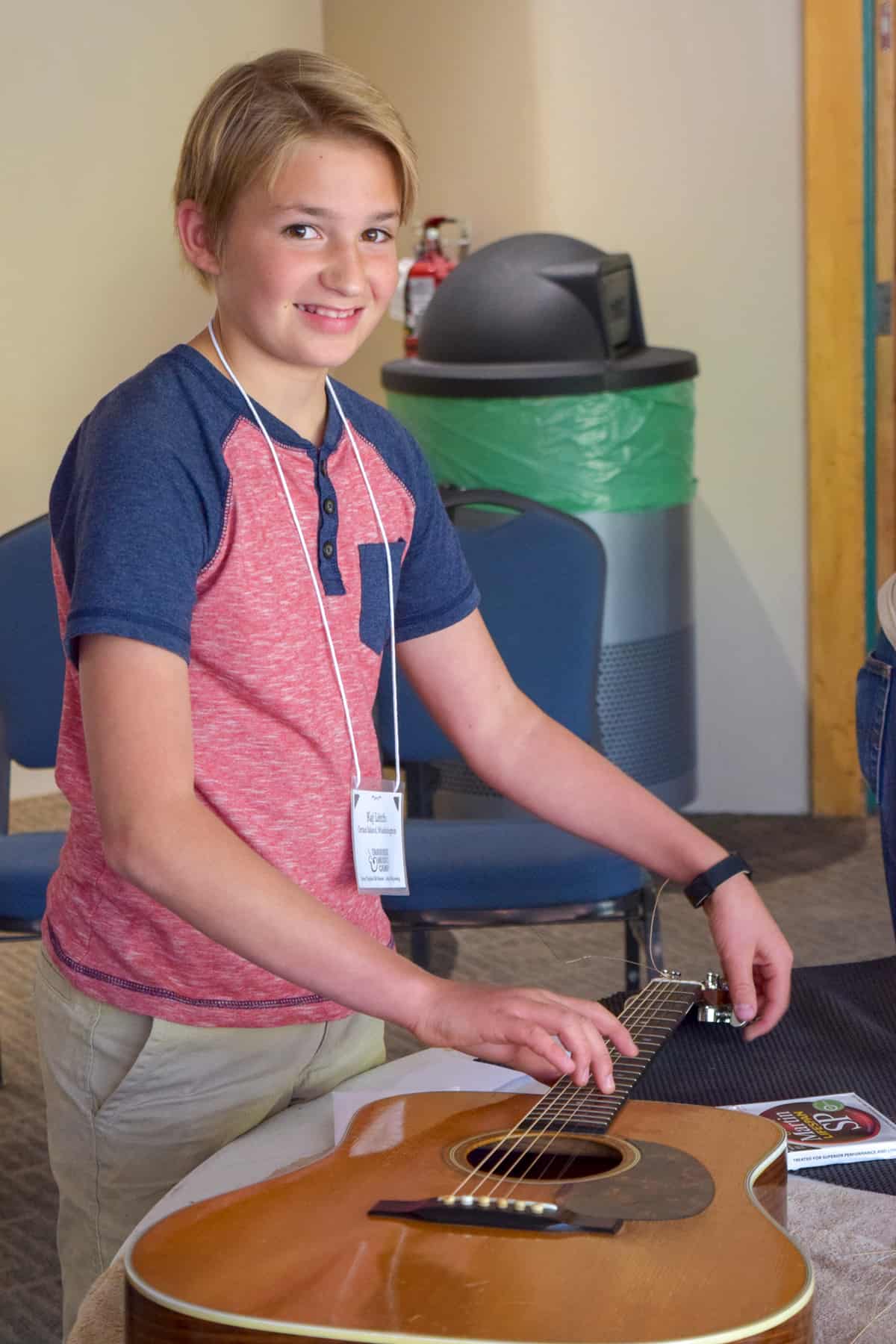
Even before he started cello lessons, there were plenty of musical opportunities for Bard at home. Bard went to preschool at the Mountain Academy, which had an “amazing music teacher,” says his mother. His father played flute through middle school and can still read music. And the family’s own ukuleles put music-making at everyone’s fingertips. The Changs regularly attend the Grand Teton Music Festival together, and Bard went to cello camp where he played with some of the GTMF musicians.
“He’s not afraid to mess around with the cello, and some of the sounds that come out of it are amazing,” says Chang.
Heinrich compares that kind of improvisational music exploration to science: An experimenter does something, observes what happens, and then studies the results.
Kids are good at listening and experimenting—“they’ve been listening all their lives,” says Heinrich. But some come from backgrounds where music-making isn’t part of the fabric of home. For those kids, it can be very uncomfortable exploring music in school. Heinrich considers it a win when kids take what they learn in school back home. She loves when a student tells her, “Hey, my sister knows this song!”
“Suddenly kids are singing these songs from music class with the family at home,” she says. “And if the siblings are singing at home, maybe that’s encouraging the parents to sing along, too.”
This thrills her because a music life is born from a musical community, not only in school, but also at home.
